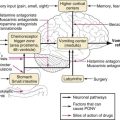
In today’s interconnected world, global health and wellness have become increasingly important. As populations grow and migrate, and as diseases cross borders more easily, the need for a global approach to healthcare is more urgent than ever. Despite significant advancements in medical technology and healthcare delivery, disparities in healthcare access remain a critical issue. These disparities, at times, result in unequal health outcomes, where some communities enjoy excellent healthcare while others struggle with limited access to even the most basic services.
Addressing these disparities requires a coordinated global effort. The goal is to provide every individual, regardless of their geographic location or socioeconomic status, with access to quality healthcare.
This article explores the strategies that healthcare systems around the world are using to address these disparities and promote equity in healthcare access.
A Global Approach to Healthcare Systems
Healthcare systems worldwide are increasingly adopting a global perspective in their efforts to reduce health disparities. This approach involves recognizing that health challenges in one part of the world can have far-reaching impacts elsewhere. For instance, the spread of infectious diseases like COVID-19 has shown how interconnected our health systems are. As a result, there is a growing emphasis on preparing and training healthcare workers to address a wide range of health issues that transcend national borders. These systems focus on building a workforce that is not only skilled in traditional healthcare practices but also equipped to handle the complexities of global health challenges.
Training and skill development are at the core of this global approach. Healthcare workers, especially nurses, are essential to delivering care across diverse settings, from urban hospitals to remote rural clinics. As such, to meet the growing demands of global healthcare, there’s a strong emphasis on expanding the skills and knowledge of nurses. This includes training in areas such as infectious disease management, cultural competence, and disaster response. As the role of nurses becomes more critical, there is an increasing need for them to pursue further education to keep up with the evolving demands of their profession. For those looking to advance their careers in nursing, online accelerated BSN programs offer a practical solution. These online programs allow nurses to continue working while enhancing their education and skills.
Addressing Disparities in Healthcare Access
Disparities in healthcare access are a significant barrier to achieving global health equity. These disparities can stem from various factors, including socioeconomic status, geographic location, and the availability of healthcare resources. In many parts of the world, people living in low-income communities or rural areas have limited access to essential healthcare services. This lack of access often leads to poorer health outcomes, with higher rates of preventable diseases, maternal and infant mortality, and other health issues that could be managed with proper care.
Hence, to address these disparities, global healthcare systems are implementing various strategies aimed at improving access to healthcare for underserved populations. One approach is expanding healthcare infrastructure in remote and underserved areas so more people have access to clinics, hospitals, and other healthcare facilities. Additionally, improving the availability of essential medicines and medical supplies is crucial for providing effective care in these regions.
Promoting Equity in Healthcare Delivery
Equity in healthcare delivery means providing care that is fair and just, where everyone has the opportunity to achieve their best possible health. This concept is critical in global health because it addresses the unique needs of different populations, particularly those who have historically been marginalized or underserved.
Promoting equity requires healthcare providers to go beyond simply offering the same services to everyone. It involves tailoring care to meet the specific needs of diverse communities. For example, culturally competent care, where healthcare providers are trained to understand and respect the cultural backgrounds of their patients, is a key component of equitable healthcare delivery.
Healthcare systems are increasingly incorporating these principles into their training and service delivery models. This includes educating healthcare providers on the social determinants of health, such as poverty, education, and housing, which can significantly impact a person’s health. Additionally, initiatives like community health worker programs, telemedicine, and mobile health clinics are helping bring healthcare services directly to underserved populations. These programs are designed to overcome barriers to access and provide care that is both accessible and relevant to the communities they serve.
Role of Technology in Enhancing Healthcare Access
Technology has emerged as a transformative force in improving healthcare access, especially in areas that have historically been underserved. Physical distance and a lack of infrastructure have long been barriers to quality healthcare in many regions. However, advancements such as telehealth are now bridging these gaps, enabling patients in remote areas to consult with healthcare providers without needing to travel. Telehealth services, along with mobile health apps and remote monitoring tools, allow for timely medical advice and treatment, regardless of a patient’s location.
These technological advancements also facilitate more personalized care. Tools like electronic health records (EHRs) and integrated health information systems provide healthcare professionals with immediate access to a patient’s comprehensive medical history. In turn, this streamlines the coordination of care and enhances the quality of treatment.
Furthermore, mobile health apps empower individuals to take charge of their health by offering features like medication reminders, chronic disease management tools, and access to educational content. Through these innovations, technology is making healthcare more accessible and efficient, with the potential to improve health outcomes globally.
The Need for a Coordinated Global Effort
Addressing healthcare disparities on a global scale necessitates a coordinated and collaborative approach. No single entity can tackle these complex issues alone. Governments, non-governmental organizations, healthcare providers, and the private sector must work together to create comprehensive strategies that address the root causes of health inequities. Global health initiatives, such as those targeting infectious diseases like HIV/AIDS and malaria, have demonstrated that significant progress is possible when the international community unites.
Aligning global health policies with the principles of equity and justice is equally important. Policymakers must prioritize the health needs of vulnerable populations and design interventions that are inclusive and culturally appropriate. Consideration of social determinants of health—such as education, income, and living conditions—is crucial when developing strategies to promote health equity. Ongoing research and data collection are also vital for monitoring progress and adapting strategies as needed. Through a collective, inclusive, and data-driven approach, the global community can make meaningful strides in reducing health disparities and ensuring that healthcare is accessible to all.
Addressing global health disparities and promoting equitable access to healthcare are vital components of improving overall health and wellness worldwide. With continued innovation and a united approach, the global community can work towards a future where everyone has the opportunity to achieve optimal health.





